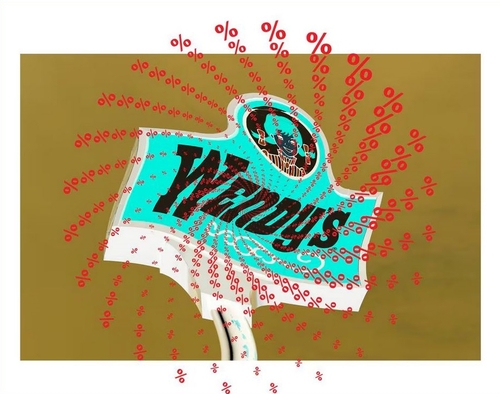
No surprise, then, that Wendy's executives put a lot of thought into pricing strategy or that the subject came up when Kirk Tanner, the company's brand-new CEO, held his first quarterly earnings call with Wall Street analysts last month. He noted that the company was investing $20 million to equip all its US restaurants with new digital menu boards, a technology that makes it possible to adjust prices, change menu items, or edit descriptions at will.
"Beginning as early as 2025, we will begin testing more enhanced features like dynamic pricing and day-part offerings," Tanner said.
His remarks raised no eyebrows at the time. But on Feb. 26 the New York Post reported that Wendy's was preparing to roll out "an 'Uber-style' surge-pricing model where the cost of menu items will fluctuate throughout the day based on demand." Decrying the company's plans as "unappetizing," the Post blasted Wendy's for gearing up to "squeeze more money out of already inflation-battered Americans who may not have the option to eat their meals during 'off-peak' hours." That triggered an anti-Wendy's backlash that some demagogues rushed to exploit.
"You could pay more for your lunch, even if the cost to Wendy's stays exactly the same," fumed Senator Elizabeth Warren, who rarely passes up an opportunity to inveigh against a retail company. "It's price gouging plain and simple, and American families have had enough." The Daily Show's Ronny Chieng had a much funnier take, envisioning himself buying 1,000 burgers when the price is low, "and then I sell them high at lunchtime. . . . I'm flipping burgers, but in a rich way!"
But Wendy's had not used the term "surge pricing," let alone described anything as "Uber-style." Ride-hailing apps charge more during periods when traffic spikes and nearby drivers are in short supply — during a downpour, for example, or on New Year's Eve. Customers sometimes grumble, but it's basic economics: When demand rises, so do prices. That's why airfares peak in the days leading up to Christmas and why a house on the beach is a lot more expensive to rent in July than in January.
What makes sense for vacation rentals and gig-economy drivers, however, can't be transplanted to the fast-food industry. There was never any indication that Wendy's was proposing to jack up the price of a Dave's Double or a Taco Salad on days when more lunch customers than usual walked through the door. "We have no plans to do that," the company said in a statement responding to the backlash. Instead, "digital menu boards could allow us to change the menu offerings at different times of day and offer discounts and value offers to our customers more easily, particularly in the slower times of day."
In other words, Wendy's says it intended to do what eating and drinking establishments have long done routinely — lower prices during slack periods in order to drum up more business. Like pubs dropping the price of drinks during "happy hour" or restaurants promoting "early bird specials" to diners who come in before the evening rush, Wendy's wants to give customers an incentive to visit during off-peak hours. That is hardly "price gouging," no matter what Senator Warren says.
For the sake of argument, though, suppose that Wendy's had been plotting to do what its critics claimed. What if its game plan was to hike prices whenever lines grew too long? What if Wendy's executives believed that doing so would spare customers from overly long waiting times by making it worthwhile for some of them to get their meals a little earlier or a little later? What if they figured that, just as consumers learned to live with surge pricing when hailing a ride to the airport or booking a hotel, they would make the same adjustment when craving a Wendy's Baconator?
Well, what if?
Wendy's operates in a fierce market against tough competitors — In-N-Out, Shake Shack, Burger King, McDonald's — all of which constantly search for ways to appeal to customers and grow their bottom line. Companies should be encouraged to experiment. There's no better way to clarify which options consumers will embrace and which they will spurn. The marketplace is replete with goods, services, techniques, and business models that were once highly unorthodox — personal computers! coffee pods! debit cards! Post-it notes! e-cigarettes! frozen pizza! contact lenses! — but that the public embraced. Let a company introduce a bad idea that flops, and its competitors know what to avoid. Let an innovation succeed — and the best measure of success is that consumers decide they are better off — and it is likely to be adopted industry-wide.
Wendy's spate of negative publicity drew a jibe from Burger King: "Surge pricing? Well, that's new. Good thing the only thing surging at BK is our flame!" But if Burger King ever sees that a Wendy's business innovation has caught on, it won't hesitate to get on the bandwagon. That is one of the highlights of a free market — the best ideas can be adapted by everyone, while the worst quickly wash out. In both cases, consumers win.
(Jeff Jacoby is a columnist for The Boston Globe).
-- ## --
Follow Jeff Jacoby on X (aka Twitter).
Discuss his columns on Facebook.
Want to read more? Sign up for "Arguable," Jeff Jacoby's free weekly email newsletter.

